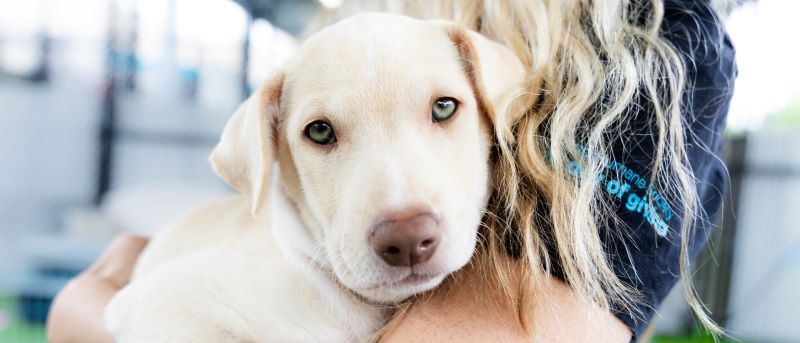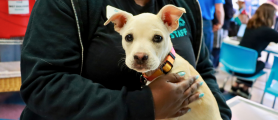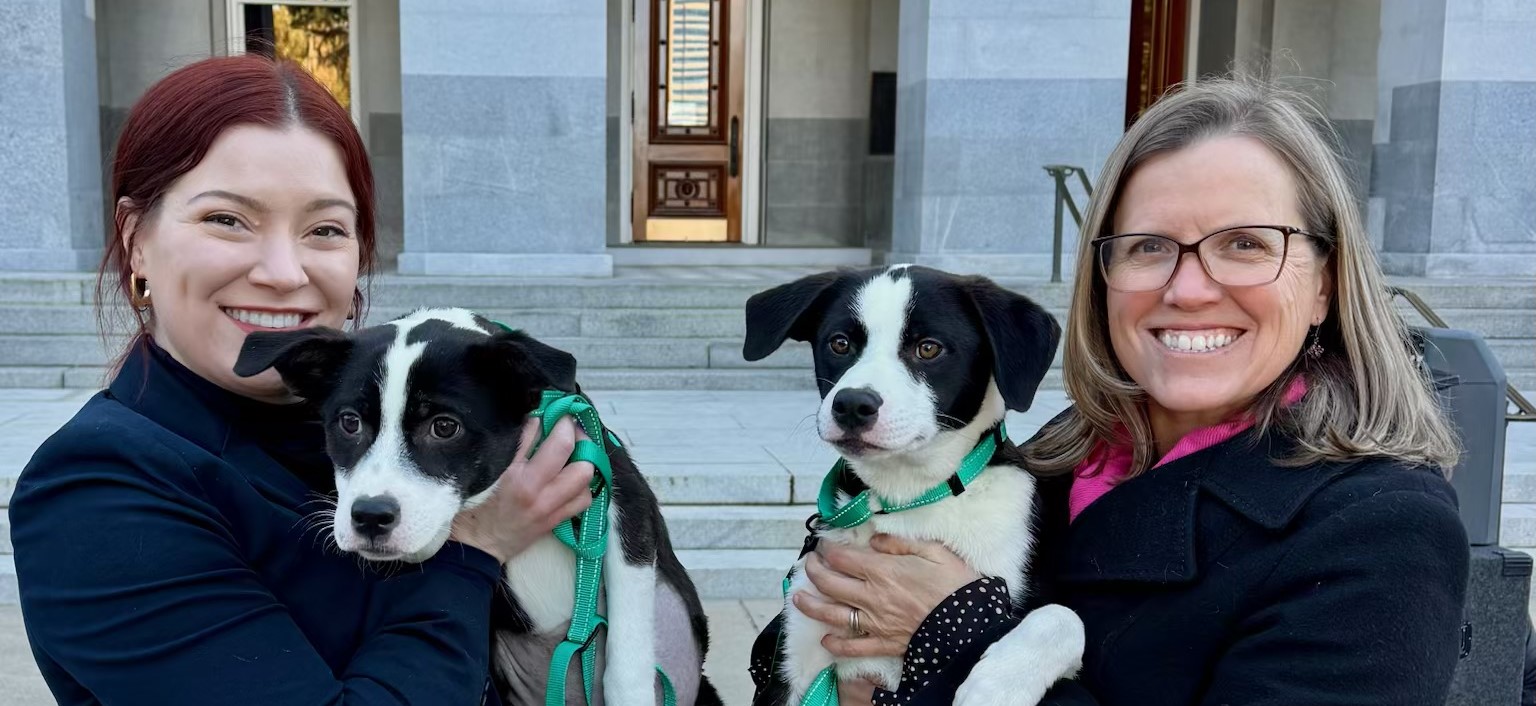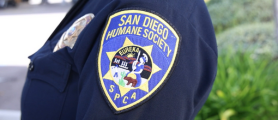Highly Pathogenic Avian Influenza (HPAI)
Highly Pathogenic Avian Influenza (HPAI) in San Diego County
Highly pathogenic avian influenza (HPAI) H5N1 remains prevalent throughout the U.S., including in San Diego County. The California Department of Health and the CDC are monitoring cases in humans, pets and wild animals.
In California, HPAI (H5N1 strain) has been confirmed in 38 humans, at least 7 cats and 650 dairy cowherds. Dogs are also susceptible dog H5N1, but so far there are no confirmed cases. For wildlife, we’ve seen positives in mammals such as mountain lions, raccoons, fishers and bobcats. Other states have confirmed HPAI in many more species, including red foxes, striped skunks, American martens, Virginia opossums, North American river otters, American black bears, Kodiak bears, Grizzly bears and more. You can see the full list here.
In October of 2022, HPAI was confirmed in Los Angeles and Orange Counties. As of Feb. 25, 2025, data from the USDA shows that HPAI H5N1 had been detected in at least 12,215 individual wild birds in the U.S.
Our first confirmed positive in San Diego County was a black swan from Lake San Marcos on Oct. 18, 2022. Since then, we have also seen a Western gull, Brown pelican, two American White pelicans, a Peregrine falcon, red-tailed hawk, a Brant and many more birds test positive. On Feb. 26, 2025, San Diego County announced the first suspected case of bird flu in a cat.
The California Department of Food and Agriculture (CDFA) considers the disease widespread in our state but the CDC still considers the risk to humans very low. San Diego Humane Society continues to follow biosecurity procedures to provide the most compassionate care to animals in need while mitigating the spread of disease.
Avian influenza (also known as "bird flu") occurs mainly in birds and is highly contagious. It is caused by viruses that occur naturally among wild birds. The highly pathogenic (HPAI) variants are potentially deadly to many species of domestic and wild birds, and in some cases mammals (e.g., cats).
Clinical signs of HPAI can vary. In general, signs develop within 3-21 days after exposure and may include:
- Sudden death and increased mortality in a flock
- Neurological signs (tremors of head and neck, inability to stand, paralysis)
- Low appetite, lethargy and diarrhea
- Difficulty breathing, sneezing, nasal discharge and coughing
- Swelling of the head, eyelids, neck and hocks
- Purple discoloration of legs
How does it spread? The virus is spread among birds through direct contact with oral or respiratory secretions, by a fecal-oral transmission, or by indirect contact through contaminated objects and surfaces. Avian influenza viruses naturally circulate in waterbirds, including waterfowl and shorebirds, with or without clinical signs. Avian predators or scavengers, including eagles, raptors, crows, ravens, gulls or vultures, may be exposed when feeding on infected waterbirds, especially during mortality events (e.g., avian cholera, avian botulism). In poultry, HPAI is highly contagious and causes significant mortality. Birds raised in captivity, such as other gallinaceous birds (turkeys, pheasants, grouse, quail) and waterfowl (ducks, geese, swans), may also be at high risk of acquiring and transmitting the virus. Avian influenza viruses are shed in bodily fluids such as saliva, nasal secretions and feces. They can be transmitted directly from an infected bird or indirectly through people or objects contaminated with virus particles (e.g., animal crates, bedding, perches, feathers, food, water, clothing, footwear, vehicles).
The virus may stay present in water for some time. The disease’s severity impacts species of birds differently. HPAI is especially deadly for gallinaceous birds (such as domestic poultry and game birds). Tragically, these birds often suffer 90-100% mortality. Other birds, such as waterfowl, can be infected with HPAI without showing any symptoms.
Important ways the public can help prevent the spread of disease:
- If you find an uninjured young bird, attempt to renest and reunite them with their parents rather than bringing them to Project Wildlife. If a bird is showing signs of illness or injury, San Diego Humane Society will perform humane euthanasia upon arrival to prevent suffering.
- Do not feed or provide water to wild birds, especially if backyard poultry or other captive birds are on the premises (e.g., chickens, turkeys, peafowl, ducks, geese, pigeons, doves). Transmission can occur among birds by drinking contaminated water.
- Attempt to rehome healthy indoor pet birds rather than bringing them to the shelter. If you need to give up your pet bird, San Diego Humane Society offers rehoming tools that allow you to find a new home for the bird and place them directly with their new family. In the meantime, pet birds should be restricted from interacting with any new birds and should not have outdoor exposure. If pet birds do need to come to San Diego Humane Society, they will be placed in foster care and kept away from other birds until a foster home can be found (without other birds or outdoor exposure).
- If engaging in outdoor activity in areas with waterfowl and other waterbirds, be sure to wash clothing, and disinfect footwear and equipment, before traveling to other areas or interacting with domestic or pet birds. Footwear and equipment may be washed with soap and water, then disinfected in household bleach diluted 1:10 with water for at least 10 minutes.
- Do not handle sick or dead wildlife. If it is necessary to do so, it is recommended to wear impermeable gloves and use an inverted plastic bag, shovel or other tool. Afterward, wash hands thoroughly with soap and water, and change clothes before having contact with domestic or pet birds.
- Contact the appropriate organization if you encounter sick or deceased wildlife:
- The public may report dead wild birds using the California Department of Fish and Wildlife’s (CDFW) mortality reporting form.
- Sick and dead poultry may be reported to the CDFA hotline at 866-922-2473.
- If you find live orphaned or injured wild birds, please contact San Diego Humane Society at 619-299-7012 for advice.
What other animals can be affected?
HPAI strains have occasionally been reported to infect some mammal species, including: pigs, cats, dogs, foxes, martens, civets, tigers and humans. Red foxes have been noted to be particularly susceptible.
Can it affect humans?
Currently, the Center for Disease Control considers the transmission risk of avian influenza to people to be low. The current strain, HPAI H5N1 influenza, can infect humans only under rare circumstances (if they have very close contact with infected birds). There is no human immunity to HPAI and no vaccine available for humans. For protective actions for human health, visit the CDC website.
What procedures are we implementing because of HPAI?
HPAI is a serious concern, and as a result, strict biosecurity and cleaning measures are essential to protect the wellbeing of animals throughout San Diego County. Following the guidance of CDFW, USDA and CDFA, the best way for us to remain open without spreading the virus to other animals is to restrict susceptible avian species from entering our buildings. This includes both domestic and wild birds.
As you can imagine, this is an incredibly difficult decision for us. Our goal is to help as many animals as possible, and in this case, that means not allowing certain avian species to enter our care. We are advising people to renest and reunite youngsters with their parents to prevent uninjured orphans from coming into our care. If an animal is showing signs of illness or injury, we do not want them to suffer and we will perform humane euthanasia at arrival.
- We will only accept intakes of wild birds at the Ramona Wildlife Center and Pilar & Chuck Bahde Wildlife Center.
- The after-hours/overnight drop off room at the Bahde Wildlife Center is closed indefinitely.
- Project Wildlife will not take in any patients from outside San Diego County.
- Birds who are young and healthy, and showing no signs of injury or illness, will be considered for release back into the wild. We encourage the public to leave healthy youngsters alone rather than bring them to San Diego Humane Society.
- Injured, ill or orphaned birds susceptible to HPAI may be humanely euthanized on intake and sent for testing.
- To protect our Project Wildlife ambassador birds, we have removed them from our campuses and placed them temporarily in approved staff homes.
- We are focusing on getting our companion birds out of shelter care as soon as possible to protect them from infection.
Where can people learn more about HPAI?
Official updates and information about avian flu can be found through the following websites:
- News updates from California Department of Fish and Wildlife
- An informational flyer addressing frequently asked questions is available on CDFW’s website
- National Wildlife Health Center: Distribution of HPAI in North America
- USDA Animal and Plant Health Inspection Service: Detections of HPAI
Updated March 3, 2025
Published: August 4, 2023








